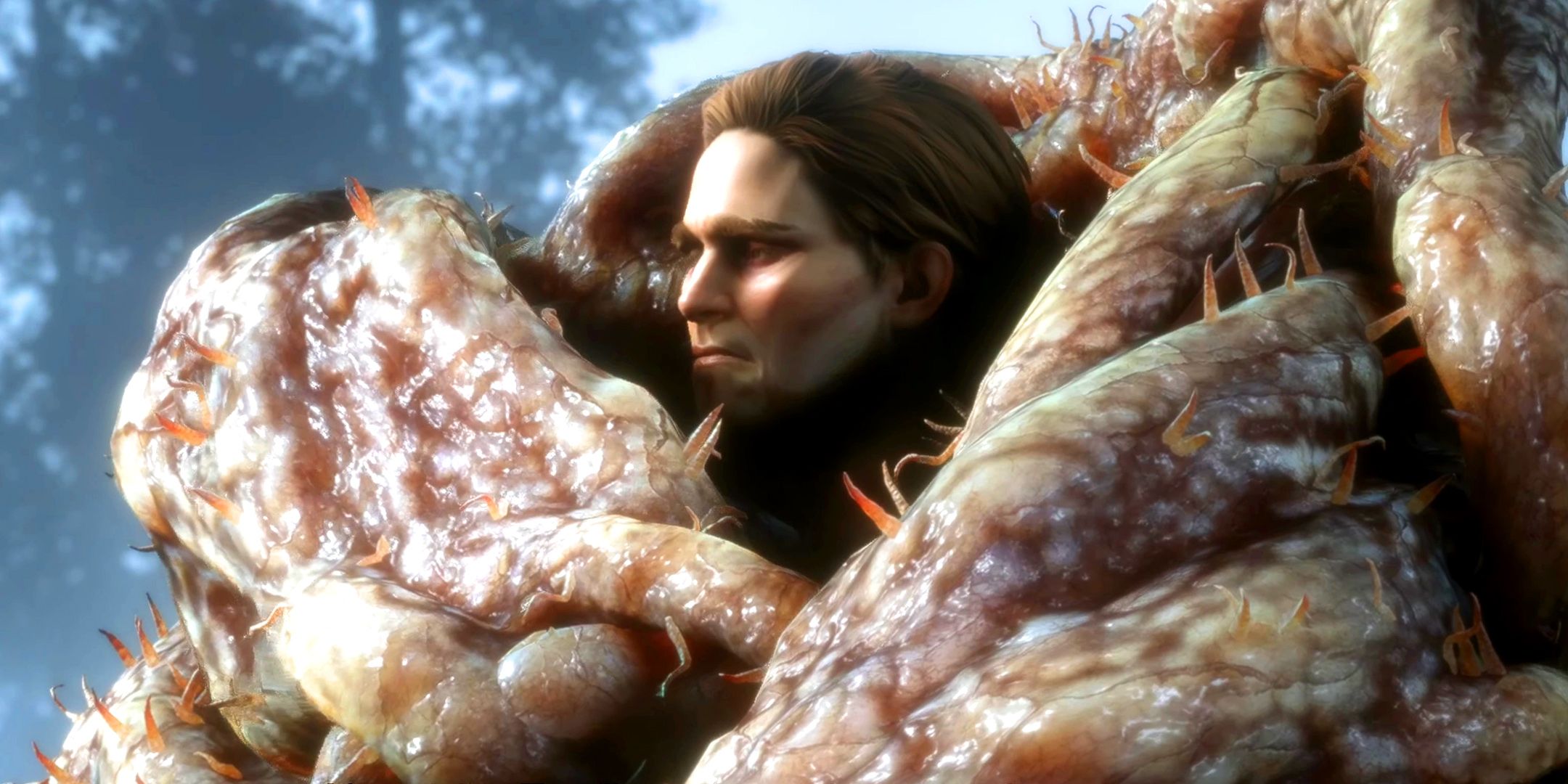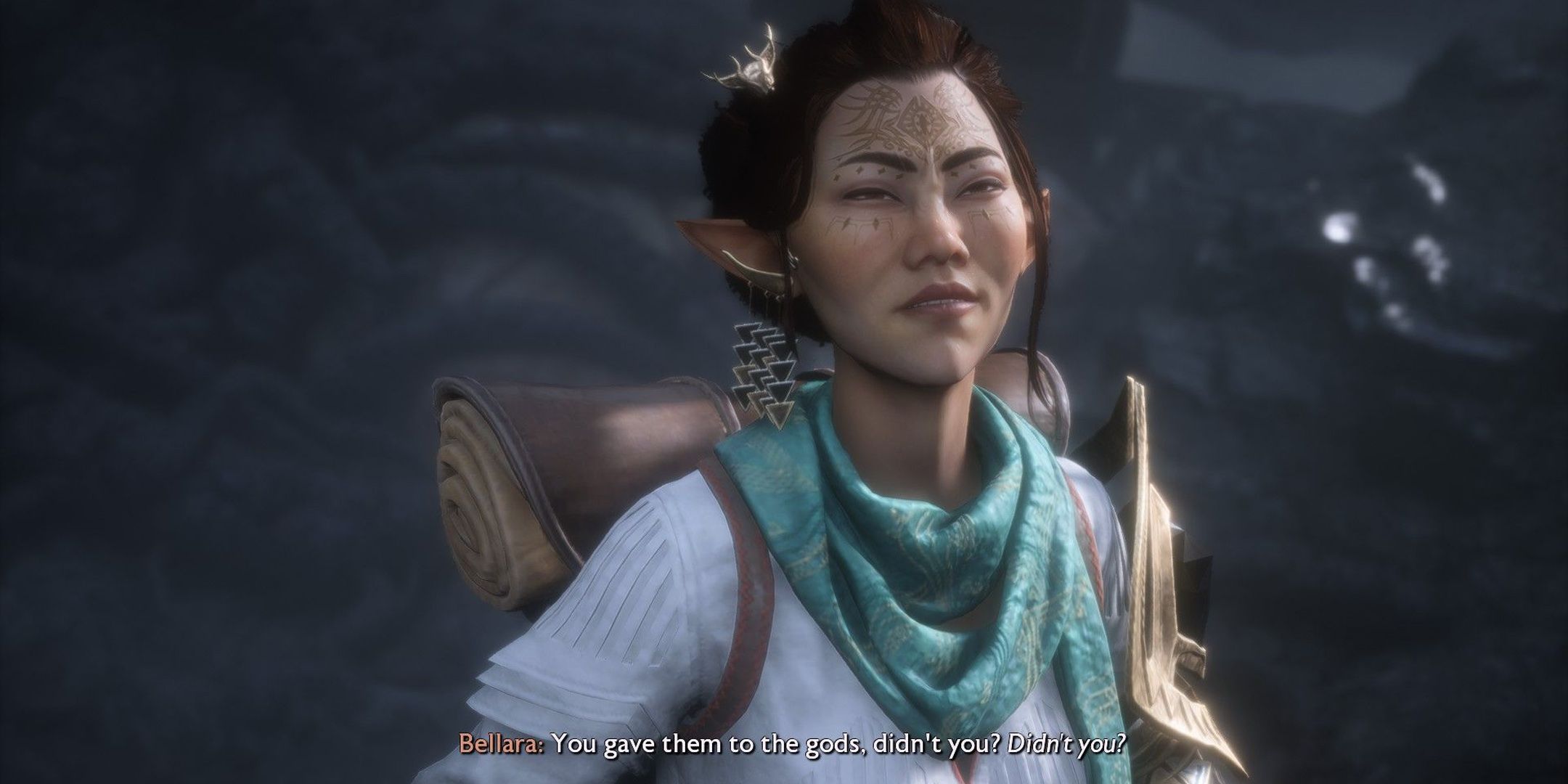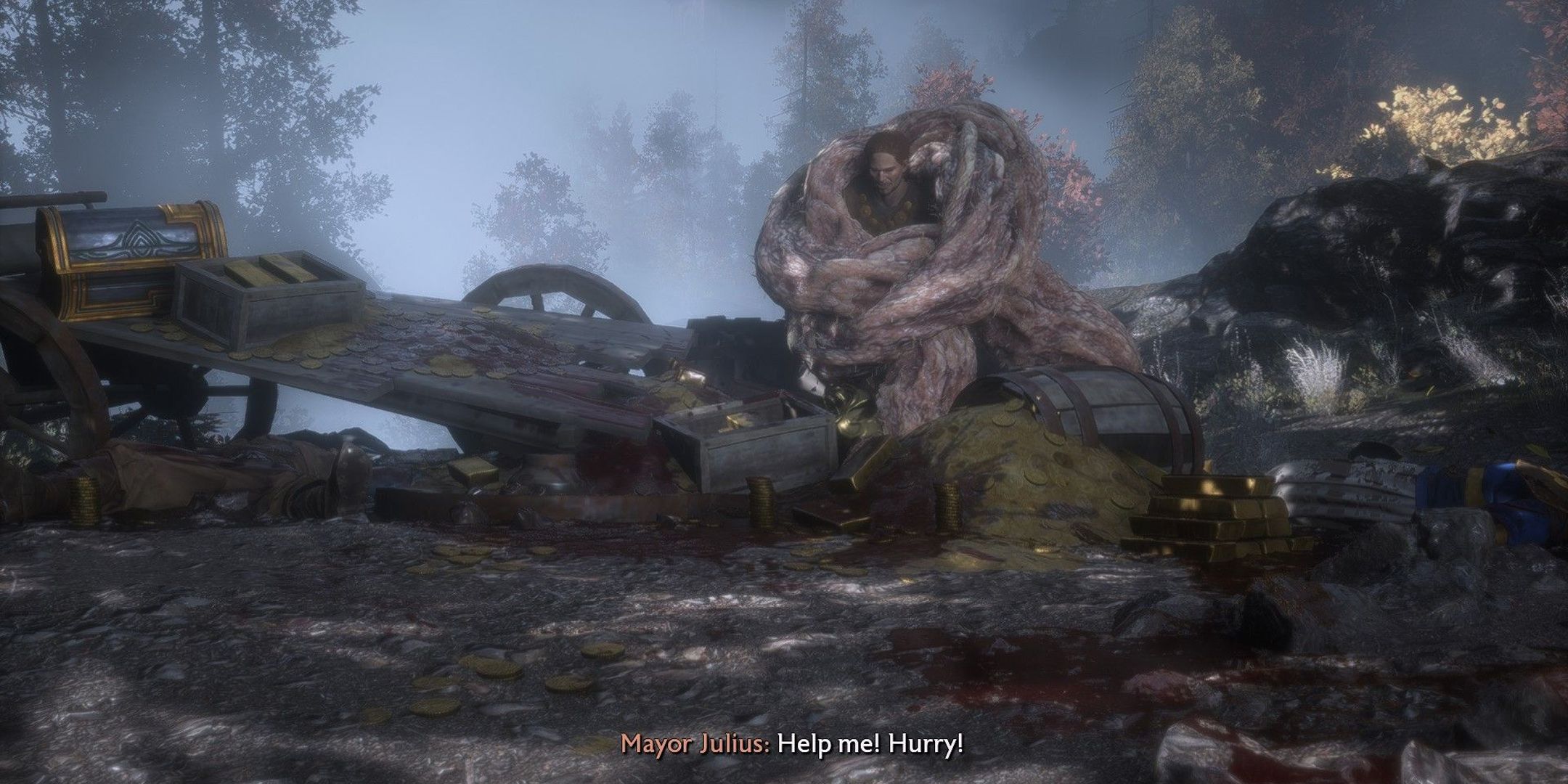
As with BioWare's previous RPGs, Dragon Age: The Veil Guard places great emphasis on the consequences of players' choices, and the game often puts players in a situation where they have to decide one way or another. These choices provide an opportunity to roleplay and decide a character's nature, but can often also have repercussions for gameplay and story that come into play later, sometimes even impacting the main story in important ways. Finally, these decisions can determine how companions feel about the player characteras they will approve or disapprove of certain choices.
One of these decisions in Guard of the Veil is in the main story mission "Shadows Crossing" near the beginning of the game, serving as one of the first moments where Rook is asked to make a moral decision. The mission revolves around the small village of D'Meta's Crossing, which was destroyed by Blight, killing almost all of its residents and two Veil Jumpers that were there. The party discovers that the village mayor, Júlio, is responsible for the destructionhaving been tempted by the elven gods, and they find him trapped in the clutches of the Plague after passing through.
What happens if you save Mayor Julius in "Shadows Crossing"
Saving Julius gets Neve's approval for Rook
After the group finds Julius, he explains that he was tricked by the elven gods, who promised him gold in exchange for the sacrifice of the two Veil Jumpers. After a brief discussion, where Neve supports Julius' release and Harding and Bellara oppose it, the player can choose how to handle the mayor's situation, with the option to free him or leave him. Ridding him of the Plague is obviously a merciful choice, earning Neve's approval.but it also comes at the cost of Harding and Bellara's disapproval, with Bellara in particular arguing against it.
For players looking to roleplay a more forgiving Tower, or for those hoping to romance Neve later on, freeing Julius is a good choice - although the approval gains are quite small, they add up, and there aren't any other repercussions to freeing Julius. From a min-max perspective, however, releasing Julius is technically the worst choice. Players focused on rewards or who like Bellara or Harding will probably want to avoid this decision. The decision to free Julius also results in a brief mention of him later by the Veil Jumpers.
What happens if you leave Mayor Julius
Leaving Júlio to his fate, on the other hand, has the exact opposite result, resulting in Rook getting approval from Harding and Bellara and disapproval from Neve. In RPG terms, this is the most punishing choice, suitable for players who want their Tower to punish wrongdoing more severely. In terms of companions, it's clearly the best option for those interested in Harding or Bellara, but also the best overall choice for players not specifically interested in any of the three, as it gets approval from two companions instead of one.
Unlike the decision to release Julian, however, the decision to leave him carries with it a long-term consequence. Later in the game, Rook will receive a side quest, “A Growing Corruption”where they are tasked with investigating some mysterious attacks in the same area. During the course of the quest, it is discovered that Julius has transformed into a powerful Darkspawn, and the party will eventually have to fight him as a minor boss, the Blighted Mayor, who gives some extra rewards and experience to the party. Notably, leaving Julius is the only way to get this quest.
While the extra quest rewards are relatively small, it still represents some extra experience for the party, making the choice to leave Julius the best option for completionists and players who want to maximize their campaign. Especially for players who are not interested in Neve, leaving Julius is the best choice from a gameplay point of viewas it offers more potential rewards than the other options. For players who will end up not caring about the side quest, however, the choice is not as impactful and still relatively balanced with either of the other two options.
What happens if you banish Julius to the Gray Wardens
Banning Julius is a unique option for Gray Warden Rook
For players who chose to have their Tower belong to the Gray Wardens faction during character creation, there is a third exclusive option, which involves freeing Julius from the Plague and banishing him to the Gray Wardens. This option is not available to players who have chosen any of the Dragon Age: The Veil Guardother factions, making it a unique reward for Gray Warden players. It is also functionally almost identical to Save Him from the Plague, with the main difference being that Neve will greatly approve of this optionmaking her the best choice for players who want to bond with her.
As with saving Julius, Harding and Bellara will still disapprove of his banishment, and there will be no opportunity to do the "A Growing Corruption" quest. As a result, even players who chose the Gray Warden faction may want to consider leaving Julius to his fate, depending on which companions they prefer.
General, the best generic option in "Shadows Crossing" is to leave Julius to his fateas it gains the approval of two companions and gives slightly better rewards in the long run - however, for players who want to bond with Neve, choosing to free or banish Julius is still a viable option without much opportunity cost. For players who want to roleplay their Tower more seriously in certain ways, the negative consequences of any decision are not important, so players can feel free to choose whatever option they morally agree with without worrying too much about the gameplay side of things.
As one of Guard of the VeilIn the game's early decisions, choosing to free Julius doesn't have many consequences - any approval gained or lost can easily be offset by later decisions, and the extra quest to let him go isn't vitally important for game or story purposes. The decision, however, allows players to make a choice about how their version of Rook behaves and sets the stage for similar moral choices to occur later. Dragon Age: The Veil Guard.
- Released
-
October 31, 2024
- Developer(s)
-
BioWare
- Editor(s)
-
Electronic Arts

